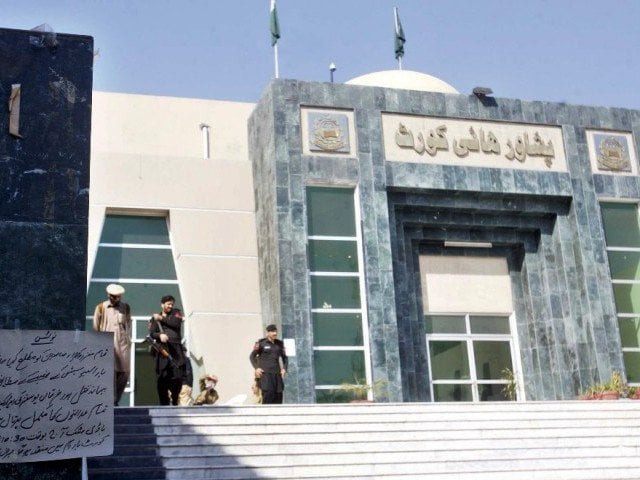Khyber Law College : AAG directed to consult government on law institute’s university status
Bench dismisses three petitions in various murder cases.

A file photo of the Peshawar High Court. PHOTO: PPI
The directive came from the Peshawar registry of the Supreme Court on Tuesday. A three-member bench headed by Chief Justice Anwar Zaheer Jamali was hearing an appeal filed by the provincial government against the Peshawar High Court’s directions to upgrade the institute’s status.
Mian Arshad Jan, the AAG, was informed that the government should at least prepare a bill in this regard and table it in the assembly, regardless of whether it is passed or not.
When the hearing commenced, the chief justice asked if there was any law university in the province, to which Jan replied no such institute exists. During the hearing, Justice Amir Hani Muslim asked why the government had raised objection to the high court’s direction if it would improve the quality of legal education offered in the province.
The AAG informed the bench that PHC had directed the provincial government to make KLC a university.
He added the high court had directed the provincial government to prepare a bill and ensure it is passed in the provincial assembly. According to Jan, PHC cannot issue such directions because it is the K-P government’s prerogative to take steps as it deems fit.
Dismissed
The same bench dismissed three petitions. The first two appeals were filed by the prosecution and defendants, respectively, in a murder case.
The bench was informed that Muhammad Nabi and Ziauddin had killed Haji Khan. Nabi was awarded death sentence by a trial court while Ziauddin was sentenced to life imprisonment. The defence lawyer filed a petition requesting the court to set Nabi and Ziauddin free. Earlier, the PHC had reduced Nabi’s sentence into life imprisonment while Ziauddin was awarded a two-year jail term.
The defence lawyer argued that the high court’s sentence was illegal as there was inconsistency between evidence and medical reports. He urged the bench to set the convicts free. Meanwhile, the prosecution filed an appeal which sought increase in the punishments awarded to both Nabi and Ziauddin. According to the prosecution, several legal points had been ignored during the course of trial in the high court.
The three-member bench also dismissed an appeal filed against PHC’s decision to convert a death sentence into life imprisonment. It was informed that Muhammad Yousaf had killed his sister-in-law and son over honour.
A trial court awarded him the death penalty twice and two jail terms amounting to 10 years for attacking and injuring two other people. Subsequently, he filed an appeal in the high court and his sentence to life imprisonment.
The bench was informed that various legal points were ignored by the court. However, Jan said the high court awarded the sentence by taking all facts into account. As a result, the bench upheld PHC’s verdict and dismissed the appeal.
Published in The Express Tribune, December 16th, 2015.













COMMENTS
Comments are moderated and generally will be posted if they are on-topic and not abusive.
For more information, please see our Comments FAQ